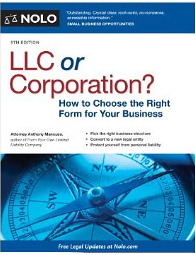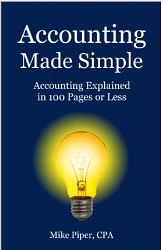As hobbyists, writers create stories for our own enjoyment and for the satisfaction of sharing our vision. To be a professional, however, we must take a step beyond that and become small business owners. Though we still love writing and storytelling, the professional writer wears many hats, interacts with many different people, and works hard to produce the highest quality product he or she can. Professional writers are editors, accountants, marketers, designers, and their own most devoted agent. Though we interact with professionals who do all these job functions for us, the modern writer must take responsibility for his or her own career, learning and growing into other functions in order to be successful.
It took me a while to see this, and even longer to believe it, to understand what it means. By talking to a number of experienced friends, people who had traveled this road before me, I was able to see further down my own path, and start taking the first steps in my own journey.
The first step in creating your business is imagining it, creating your brand and beginning to build your name. Though writers sell individual works of fiction, I would argue a writer sells themselves, their abilities as a storyteller and their name as their primary product. There are an ocean of voices out there, all clamoring to be heard, so why then would a reader become a fan? How does a writer assure return business? It starts with the writer’s brand. The first step I took to becoming a professional was designing my identity and creating Nathan Barra.
The writer’s brand starts with the name, something that will appear on books. In November, I wrote my Fictorians post on the choosing of a good pseudonym, so I am not going to repeat what I said there. Instead, I want to emphasize how important it is to approach the branding process intelligently. Any other business, be a Coca-Cola, Calvin Klein, or Google, hires marketing firms to establish an identity that is immediately an easily recognizable and distinct. As writers, we must also do this, be it often with a smaller budget.
When you work with a designer on a branding package, one of your early conversations will be what you want your brand to convey. For me, I wanted Nathan to have two faces. First was the face I showed to consumers. I wanted Nathan to be dependable, intelligent, articulate and someone that readers would trust to produce high quality work regularly, stories they would enjoy reading even if it was outside their normal genre comfort zone. The second visage of Nathan was the professional face. I wanted industry professionals to see me and believe that I would be a reliable coworker, someone who would produce high-quality work on time, with regularity, and would be someone that they would enjoy working with.
My designer and I took these ideas and built my website, my logo, and my color palette. I created a look, a series of outfits that I wear whenever I make professional appearances as Nathan. I started pulling together a media package to give out when I guessed posted. I established Nathan Barra.com, and my blog, In Brief. I worked hard to create posts and gather content of the highest quality that I could manage. Most importantly, I was never, ever late. All these actions fed into the brand I was trying to establish.
At first, Nathan was a mask that I wore, and identity that I adopted when I wrote. However, in the year since I established myself as Nathan, that identity has become a second skin. Nathan is who I am when I write and when I interact with industry professionals. Nathan, and the brand I built around him, is the basis of my business.
That step taken, I began looking to some of the writers that I admired, both the professionals and the semi-professionals, to chart my next step. Though I haven’t spent a great deal of money on Nathan Barra, the cost of design work, hosting fees, and conferences isn’t insignificant. I haven’t been tracking my finances like it’s a business, but rather spending like the hobbyist. Therefore, my next step seems obvious. I need to change my spending habits and whip myself into financial shape. More on that tomorrow, however, when I speak about my second step in my professional journey.
 There are a lot of questions and possibilities with a prompt like that. What kind of aliens are they? How do the people in the bar view them? Is this a normal occurrence and are they outer-space aliens or out-of-town aliens? What kind of bar? A cocktail bar, small-town bar, or a geographical bar? Did they walk into the building or literally into the bar? And again, how would this all be perceived from the aliens’ point of view, the bartender’s, the customers’, or the point of view of a child. And why would a child be in a bar?
There are a lot of questions and possibilities with a prompt like that. What kind of aliens are they? How do the people in the bar view them? Is this a normal occurrence and are they outer-space aliens or out-of-town aliens? What kind of bar? A cocktail bar, small-town bar, or a geographical bar? Did they walk into the building or literally into the bar? And again, how would this all be perceived from the aliens’ point of view, the bartender’s, the customers’, or the point of view of a child. And why would a child be in a bar?

